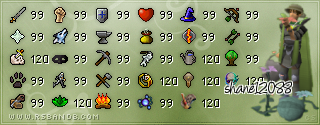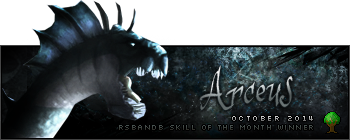Star Trek has been a part of me for as long as I can remember. Those who listen to RSBANDBUpdate! will know that Star Trek references creep in quite often. With this month being free topic month I've decided to take it upon myself to collect my favourite Star Trek episodes. These episodes are all great jumping in points if anyone is interested in watching any of these Star Trek series. Some also provide critical backing knowledge to the core of Star Trek civilization.
Star Trek: The Next Generation
The Next Generation (TNG) was the first series that I watched. It was incredibly popular in the late 80s and early 1990s and is widely credited with reinvigorating the Star Trek franchise and moving it to where it is today. TNG continued doing what the original series did, talking about important issues of the day and opening minds up to what a potential future could hold. This was all done in a more modern setting while still maintaining classic Star Trek themes. TNG is set in the 24th century (2360s) which takes place 100 years after the original series.
5. The Best of Both Worlds - This episode marked the end of season 3 and was the first time that any Star Trek series used a cliff-hanger as a season finale. This episode also developed the Borg (a collection of assimilated species all residing within a single collective consciousness) into the series' most famous antagonists. This ultimately lead to the best grossing (of the time) Star Trek movie: Star Trek First Contact. The Best of Both Worlds also touches on many important themes such as PTSD (Post-traumatic stress disorder) and how those brainwashed may not even realize the wrongs they commit.
4. First Contact - There are bound to be people in our time who wonder what first contact with an extraterrestrial civilization would look like. This episode provides a glimpse of that through a covert operation carried out on the surface of an alien world. The episode talks at length about the reaction to the discovery that the Malcorians are not alone in the universe from both sides (The Enterprise and those on the surface). It also distinctly defines the Prime Directive, a set of guiding principles that everyone in the Federation must follow.
3. All Good Things... - The series finale of The Next Generation. The world had moved from the 1980s into the 1990s by the time this episode aired. This episode acts as a perfect summation of The Next Generation. The episode features past and future variations of the crew which are tied together by a time shifting Captain Picard. Picard and crew face a problem of galactic proportions and must work to ensure the survival of the human race. This is done in the classic Star Trek way of problem solving rather than simply fixing the issue with a miracle piece of technology.
2. Data's Day - Data, an android whose wish beyond all other is to become human. This episode chronicles a day in the life of the android though his interactions with others. As an android, Data is incapable of expressing or reading human emotions. As a result it makes certain interactions much more difficult. All of his observations are recorded in letter form to a colleague at the Daystrom Institute's Cybernetics Division. We get to watch Data learn and grow though his interactions, in this effort he becomes slightly more human. This episode is magnificent because there are so many real world parallels to those who have been diagnosed with varying degrees of Autism.
1. The Inner Light - An alien space probe is encountered and Captain Picard is subjected to a scan and rendered unconscious for the span of 20 minutes. In this time period he has a remarkable experience, he lives an entire lifetime. This episode is meaningful on a great variety of levels. It touches on themes from every corner of human existence. It also gives Captain Picard the opportunity to have something he's never had: a family.
Honourable Mentions
- Yesterday's Enterprise
- Qpid
- Cause and Effect
- The Chase
- The Pegasus
Star Trek: Deep Space NineDeep Space Nine was a departure from classic Star Trek in many ways. First and foremost, it ran while other Star Trek series were running. It was also set on a space station and not a starship. It also pushed the boundaries of what Star Trek covered, specifically with regards to religion and the evil that undoubtedly exists in the universe. Deep Space Nine provides some the best story telling in any of the Star Trek franchises. Deep Space Nine needs to be watched in episodic order, as it is the most serialized of any Star Trek series until Enterprise season 3. Let's begin!
5. In the Hands of the Prophets - Deep Space Nine is different in many ways compared to other Star Trek series; for example, this episode deals with religion. There are many other episodes of Deep Space Nine that deal with religion but this one showed how far the producers were willing to go. It deals with classic themes such as secularism vs. religious origin teachings and the conflict that can occur when science is involved. This episode also sets up a very nice story arc pertaining to corruption in the Bajoran religious order.
4. The Jem'Hadar / The Search - A mission to the Gamma Quadrant for a school project discovers something far more sinister. Commander Sisko and his son Jake set foot on to what looks like an uninhabited planet but instead they discover the ruthless soldiers of the Dominion, the Jem'Hadar. In parts 2 and 3 of this arc Sisko returns to the Gamma Quadrant in a more equipped starship to search for the founders of the Dominion. They become unwilling victims of a plot to see just how far the Federation will go to ensure peace. This episode sets up the final seasons of Deep Space Nine and is what enables Deep Space Nine to tell the best stories of any Star Trek series. "You have no idea what's begun here." -- Eris
3. Homefront / Paradise Lost - Set a couple years after making first contact with the Dominion, the Federation has begun bolstering its defences in key areas. One of these areas is Earth, our home world that hasn't seen a bloody war in a long time, and the Federation council is willing to do whatever necessary to protect it. This episode was produced many years before the events of 9/11 but it is a picture perfect example into the idea of security theatre versus actual security. Something many countries today still need to grasp in order to be effective.
2. Take Me out to the Holosuite - This is by far one of the more lighthearted Star Trek episodes out there. The central premise focuses on many humans' desire to win at all costs. A baseball game takes place on one of the DS9's holosuites (similar to a holodeck) featuring a match up between Sisko's crew and a visiting crew of Vulcans. This episode lifts up the season from a very serious tone and gives it a breath of fresh air. It also is amusing because being the 24th century, baseball has fallen away as a popular form of sport and very few actually know how the game works. As a result of this, what ensues is hilarious and results in one of the best quotes from any Star Trek episode. "Find him and kill him!" -- Worf's method of playing baseball.
1. In the Pale Moonlight - This episode deals with the internal struggles of a weary war commander who must find a solution to the ever increasing losses the Federation and Klingon alliance is facing. This episode's primary point of view revolves around reflection through a log entry contemplating the choices that have been made. Ultimately, a ploy to turn the tables of war is successful that significantly shifts the balance of power in the war effort. However, the cost is high and we see the rationalization that ultimately takes place in war. This is by far the single best episode of Deep Space Nine and maybe the best episode of the entire Star Trek franchise, that is why I have made an effort to not include any major spoilers here.
Honourable Mentions
- The Homecoming / The Circle / The Siege (3 part episode)
- The Adversary
- Trials and Tribble-ations
- Inter Arma Enim Silent Leges
- What You Leave Behind
- and many more...
I hope these episodes have provided you with an insight into why Star Trek is one of the greatest TV franchises ever created. These episodes are all critical to their series and the franchise as a whole. Part 2 will cover episodes from The Original Series, Voyager, and Enterprise. Until then, one thing that I hope you will take away from these episodes is that Star Trek is not about blasting down doors or coming up with miraculous solutions to problems, it's about the journey towards the solution. If anyone has any questions please do not hesitate to ask. I would love to discuss any of these episodes further.
This was originally posted as an
Informer Real World article.














